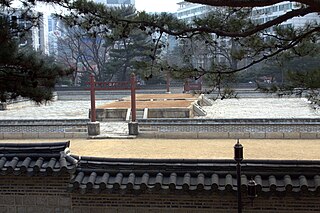 W
WBenevolence and the Mandate of Heaven: Transformation of pre-Qin Confucian Classics is a book by a Taiwanese historian Olga Gorodetskaya, published in 2010 in Taipei. The book concerns itself with the Confucian philosophical concepts of Benevolence (Ren) and the Mandate of Heaven and their evolution during the period before the establishment of the empire by Qin dynasty.
 W
WConfucian ritual religion, or the Confucian civil religion, defines the civil religion of China. It consists in the state-endorsed ceremonies and sacrifices (cults), held according to Confucian modalities, dedicated to those gods which represent the theologico-political origin of the state itself and the Chinese civilisation. These rituals have undergone a great revitalisation in post-Maoist China creating a public space in which the Chinese state and popular Confucian movements jostle and negotiate with each other.
 W
WDai Zhen was a Chinese philosopher of the Qing dynasty. Hailing from Xiuning, Anhui Dai was a versatile scholar who made great contributions to mathematics, geography, phonology and philosophy. His philosophical and philological critiques of Neo-Confucianism continue to be influential.
 W
WGao Heng was a Chinese philologist and palaeographer, known for his work on the modern interpretation of the I Ching. Among his most important accomplishments, he published a new translation of the ancient political treatise of Lord Shang with an original commentary in the (tumultuous) context of the 1970s.
 W
WThe Sajikdan is a Korean Neo-Confucian altar located in Seoul, South Korea used to perform the national soil and grain ceremonies during the Joseon Dynasty.
 W
WThe Taigu school, also Great Perfection or Yellow Cliff teaching, is a mystical folk religious sect of Confucianism spread especially in Jiangsu, Anhui and Shandong. It was founded by Zhou Xingyuan, a man with shamanic skills entitled Taigu by followers.
 W
WXué Ér (學而) is the first book of the Analects of Confucius. According to Zhu Xi, a Confucian philosopher in the 12th century, the book Xue Er is the base of moral improvement because it touches upon the basic principles of being a "gentleman".
 W
WYan Yuan, courtesy name Yizhi or Hunran, art name Xizhai founded the practical school of Confucianism to contrast with the more ethereal Neo-Confucianism that had been popular in China for the previous six centuries. Like the Han learning scholars, he rejected the abstract metaphysics of the Neo-Confucians. However, he considered Han learning as too obsessed with philology and textual criticism and not enough emphasis on pragmatism. His school promoted the Six Arts.
 W
WYao Yue (堯曰) is one of the 20 books of the Analects of Confucius. Notably, it is the last book of the Analects. As the concluding book, Yaoyue is one of the hotly debated book of the Analects due to its distinct writing style and inconsistency with previous books.
 W
WYi Saek, also known by his pen name Mogeun, was a Korean writer and poet. His family belonged to the Hansan Yi clan. Yi Saek played a crucial role in the introduction and localisation of philosophy of Zhu Xi. He studied Neo-Confucianism in Yuan Dynasty China and opened an academy after his return to Goryeo, and from his academy the founders of Joseon Dynasty were educated.